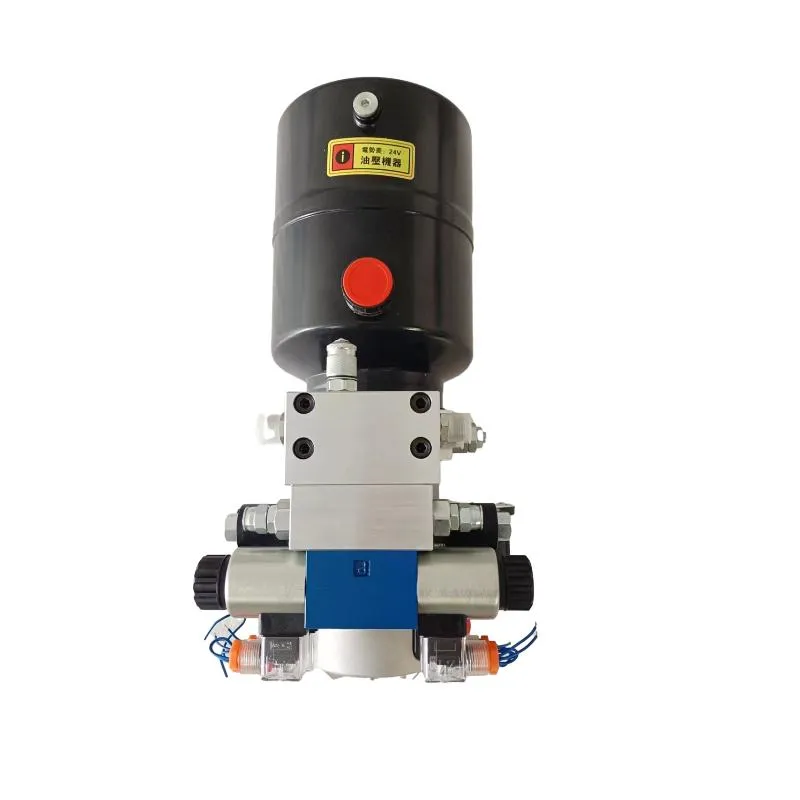Jul . 31, 2024 23:36 Back to list
Choosing the Right Manufacturer for Your Hydraulic Suspension Cylinder Needs and Applications
The Evolution and Importance of Hydraulic Suspension Cylinder Manufacturers
Hydraulic suspension systems play a crucial role in modern automotive and industrial applications, offering unparalleled comfort and stability. At the heart of these systems lies the hydraulic suspension cylinder, a critical component that enables smooth ride quality and effective load management. As demand for advanced hydraulic solutions grows, the role of hydraulic suspension cylinder manufacturers becomes increasingly pivotal.
Understanding Hydraulic Suspension Systems
Hydraulic suspension systems utilize fluid mechanics to absorb shock and manage the vehicle’s posture. These systems are designed to respond dynamically to road conditions, providing a cushioned ride that minimizes the impact of bumps and obstacles. The hydraulic suspension cylinder, typically filled with hydraulic fluid, operates by utilizing pressure differentials to extend or retract, adjusting the vehicle's height and stiffness according to real-time needs.
The Role of Manufacturers
Manufacturers specializing in hydraulic suspension cylinders are responsible for designing, producing, and distributing these critical components. Their expertise ensures that the cylinders not only meet performance expectations but also adhere to safety standards and regulations. These manufacturers often employ advanced engineering practices and cutting-edge technologies to produce cylinders that are durable, efficient, and capable of handling varying conditions.
Technology and Innovation
The landscape of hydraulic suspension cylinder manufacturing is constantly evolving
. Innovations in materials science, fluid dynamics, and automation have paved the way for the production of more lightweight and resilient cylinders. For instance, the use of composite materials reduces weight without compromising strength, while advancements in manufacturing processes, such as precision machining and 3D printing, enhance production efficiency and customization.Moreover, manufacturers are increasingly adopting smart technologies. Integrated sensors and IoT capabilities allow for real-time monitoring and adjustments, significantly improving the functionality of hydraulic systems. These smart cylinders can automatically adjust damping characteristics based on road conditions, providing enhanced performance and driver comfort.
hydraulic suspension cylinder manufacturer

Sustainability and Efficiency
In today’s market, sustainability has become a key consideration for hydraulic suspension cylinder manufacturers. As industries seek to reduce their environmental impact, manufacturers are exploring eco-friendly materials and energy-efficient production processes. This shift not only addresses regulatory pressures but also aligns with consumer expectations for greener products.
Manufacturers are also focused on improving the efficiency of hydraulic systems. By designing more efficient hydraulic circuits and optimizing fluid flow, they can significantly enhance the performance of suspension systems, leading to reduced fuel consumption and lower emissions in automotive applications.
Challenges and the Future Outlook
Despite the advancements, hydraulic suspension cylinder manufacturers face challenges such as global supply chain disruptions, fluctuating raw material costs, and increasing competition. Adapting to these challenges requires innovation and resilience. Manufacturers that prioritize research and development, customer collaboration, and agile manufacturing practices are better positioned to thrive in this competitive landscape.
Looking ahead, the future of hydraulic suspension cylinder manufacturing is promising. With the rise of electric vehicles and autonomous driving technologies, the demand for sophisticated suspension systems will likely increase. This trend offers manufacturers opportunities for growth and diversification as they explore new markets and applications.
Conclusion
Hydraulic suspension cylinder manufacturers are essential players in the automotive and industrial sectors. Their commitment to innovation, sustainability, and quality not only enhances the performance of hydraulic suspension systems but also contributes to the overall advancement of transportation technology. As the industry evolves, these manufacturers will continue to adapt, ensuring that they meet the challenges and demands of a rapidly changing world. By embracing technology and prioritizing sustainability, they are poised to lead the way into the future of hydraulic systems.
-
Fork Lift Power Units - Hebei Shenghan | Efficiency, Reliability
NewsJul.13,2025
-
1.5-Ton Turbocharged Cylinder-Hebei Shenghan|Hydraulic Solution,Energy Efficiency
NewsJul.13,2025
-
Auto Hoist Power Units-Hebei Shenghan|Efficiency&Industrial Lifting
NewsJul.13,2025
-
Double Acting Power Units-Hebei Shenghan|Hydraulic Solutions,Industrial Efficiency
NewsJul.13,2025
-
1.5 Ton Lifting Cylinder 70/82-40-290-535 - High-Performance Hydraulic Solution | Hebei Shenghan
NewsJul.13,2025
-
Fork Lift Power Units - Hebei Shenghan | Efficiency&Reliability
NewsJul.13,2025
